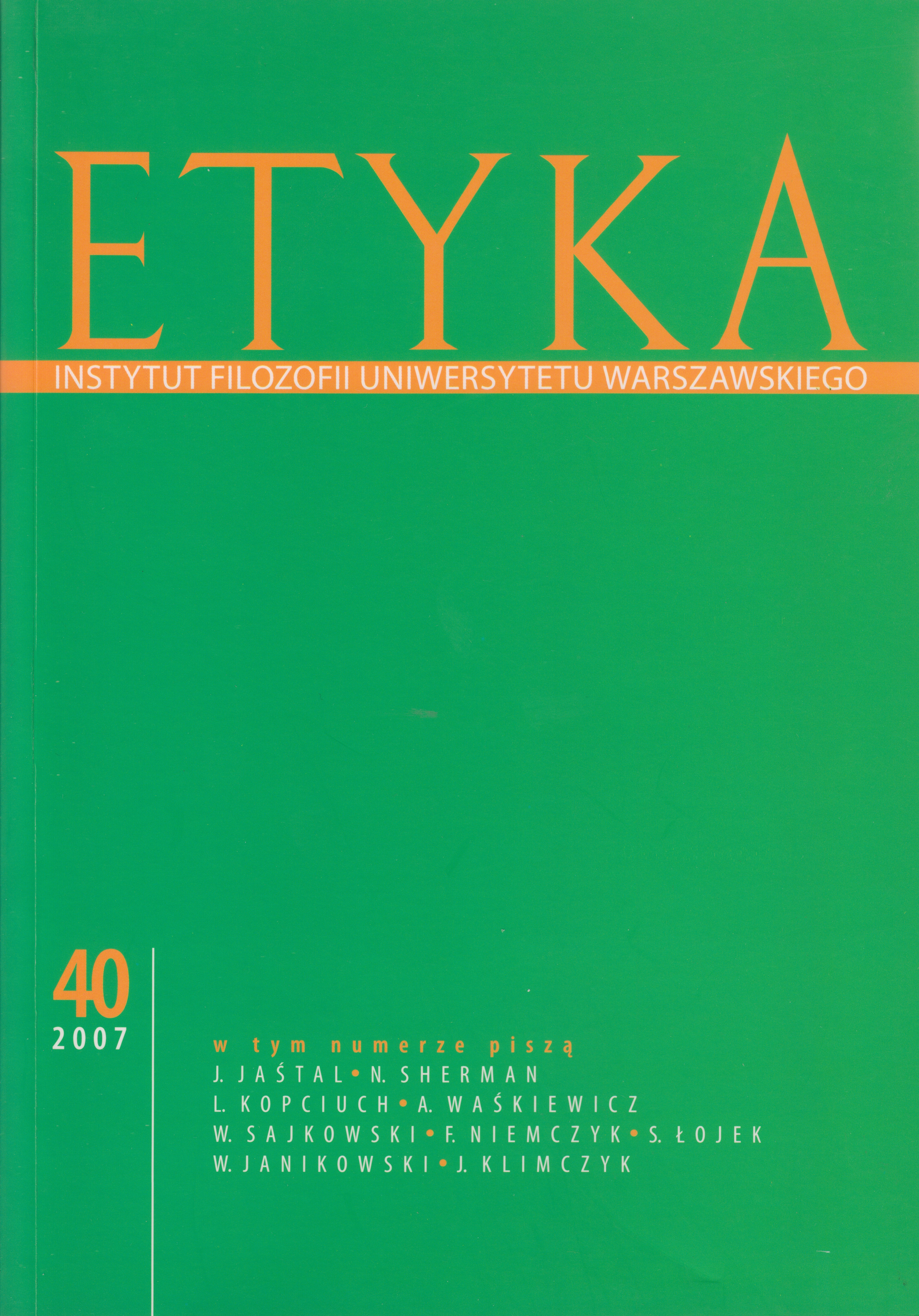Internalisms and Externalisms in Metaethics. An Overview
Abstract
In the article I define the concepts of internalism and externalism used in contemporary metaethics. Depending on context, the terms denote different ideas. What is labeled (ethical) internalism by one author is sometimes substantively very close to (ethical) externalism, as defined by another author. For this reason we should define each of the claims precisely. In an attempt to do this I specify the following forms of internalism and externalism: 1) practical rationality internalism and externalism; 2) content internalism and externalism; 3) judgment internalism and externalism; 4) appraisal internalism and externalism; 5) mixed and underdetermined internalism and externalism; 6) acceptance internalism and externalism; 7) knowledgeability internalism and externalism. This classification is, as far as I know, comprehensive and useful in explicating the diversity of positions. It also shows important affinities between some of them. At the end of the paper I explore, for illustrative purposes, what internalism and externalism would mean for a society–centered eudaimonistic rule utilitarianism. Depending on how moral ‘ought’ is understood, different internalisms and externalisms are identified. One form of internalism and externalism is realized, if one is committed to the principle of the greatest happiness for all; a different form, when the principle is rejected.Downloads
Published
Issue
Section
License
Works published in ETYKA are available under the Creative Commons Attribution No Derivatives 4.0 International Licence (CC BY-ND), which entails acknowledgement of authorship without derivative works. Under this licence, Authors keep their copyrights and agree that their works can be used again legally for any purpose, including commercial ones, except for the creation of derivative works, without the need to obtain previous consent of the Author or publisher. The articles can be downloaded, printed, copied and disseminated; under the condition that the authorship is indicated accordingly, together with the place of original publication. The Authors preserve their copyrights to the above-mentioned works without any limitation whatsoever.



